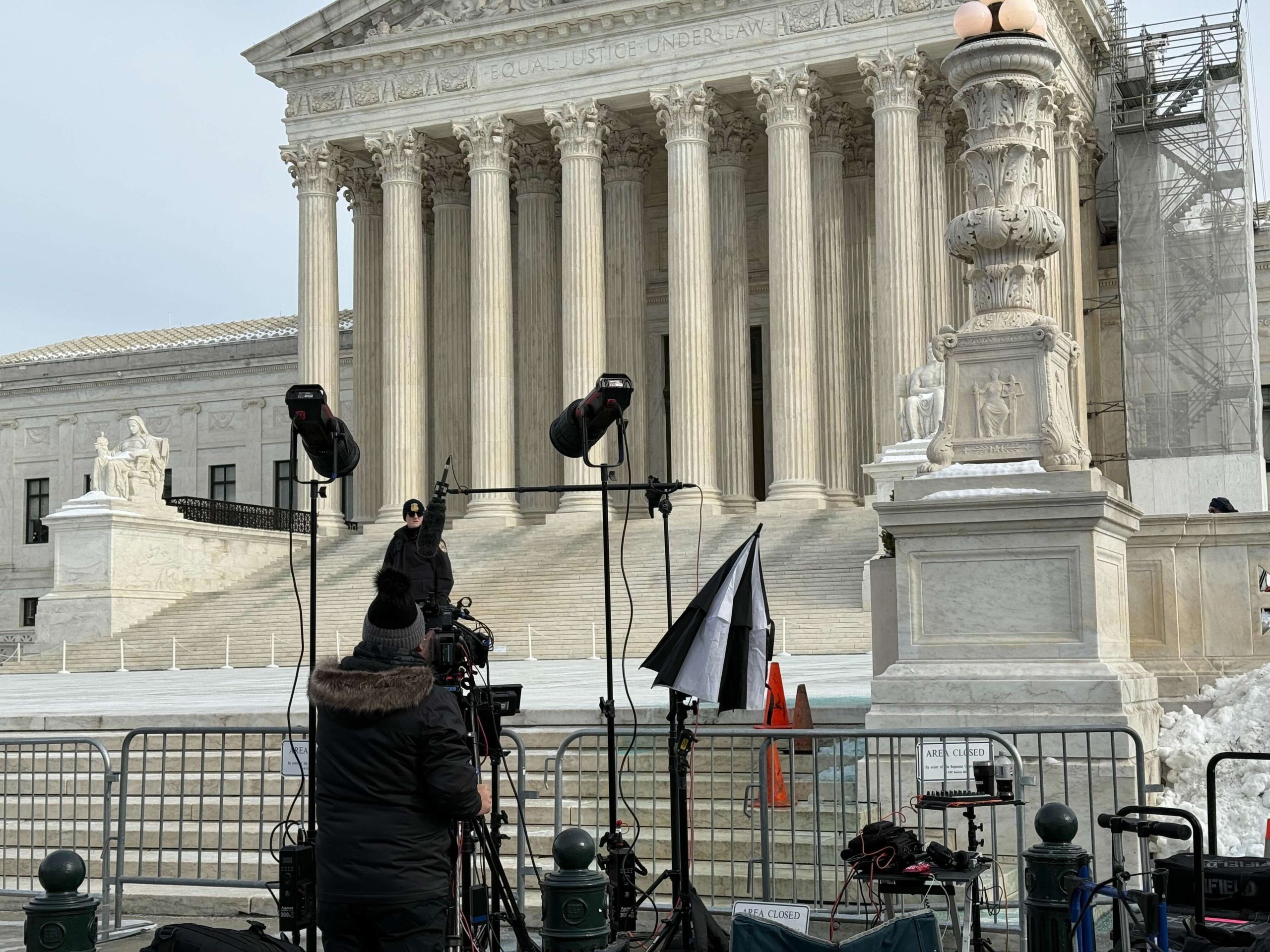EMERGENCY DOCKET
Watchdog agency head tells justices to stay out of firing dispute

on Feb 18, 2025 at 5:50 pm

Special Counsel Hampton Dellinger told the justices on Tuesday to leave in place a federal judge’s temporary order to reinstate him to his job. The head of the independent agency charged with whistleblower protection said that the Trump administration’s plea for intervention on Sunday night is a meritless attempt to “declare a five-alarm fire” over the order. All that the order by U.S. District Judge Amy Berman Jackson accomplishes, Dellinger told the justices, is to maintain the status quo – allowing him to remain in office – “while the district court engages in extremely expedited proceedings to address the merits of the parties’ underlying dispute.”
The Trump administration fired Dellinger in an email on Feb. 7. The Office of Special Counsel is tasked with protecting federal employees, and in particular whistleblowers, from retaliation and is considered independent from the sitting president. Dellinger had served as head of the agency since 2024, when he was appointed by then-President Joe Biden to serve a five-year term.
Under the 1978 federal law creating the Office of Special Counsel, Dellinger could be removed from his position only for “inefficiency, neglect of duty, or malfeasance in office.” The Feb. 7 email did not cite any of those reasons for his firing.
On Feb. 12, Jackson issued a temporary restraining order that reinstated Dellinger for 14 days. The U.S. Court of Appeals for the District of Columbia Circuit rejected the government’s appeal, holding that the appeals court lacked the authority to consider it.
The Trump administration then came to the Supreme Court on Feb. 16, asking the justices to weigh in. Acting Solicitor General Sarah Harris called Jackson’s order an “unprecedented assault on the separation of powers that warrants immediate relief.”
Dellinger filed his brief opposing the Trump administration’s request at the court on Tuesday afternoon, nearly a full day before the deadline set for him by Chief Justice John Roberts, who handles emergency appeals from the District of Columbia. He contended that the Trump administration is asking the justices to create an exception for the president to the generations-old rule that temporary restraining orders cannot be appealed.
Dellinger warned the justices that considering the government’s appeal in his case would open the floodgates to more appeals from temporary restraining orders. It would create, he suggested, “a rocket docket straight to this Court, even as high-stakes emergency litigation proliferates across the country.”
And in any event, Dellinger continued, the government does not contest that it violated a federal law when it fired Dellinger without a good reason. “In light of that concession,” he wrote, “it is difficult to comprehend how temporary continued adherence to the OSC’s statutory scheme” amounts to a “crisis for the separation of powers and an emergency that overrides limits on appellate jurisdiction.” And, Dellinger added, “we are unaware of any case where this Court has granted emergency relief (let alone from an ordinarily unappealable TRO) so that the government can continue to violate a federal statute.”
As a practical matter, Dellinger observed, the case is moving quickly in the district court, which has fast-tracked the case and could decide it “in ways that avoid any need for this Court’s intervention (or at least create a proper record for it).”
Even if the justices were to agree with the government that it has the power to review Jackson’s temporary restraining order, Dellinger continued, they should leave that order in place. Among other things, he contends, the Trump administration is unlikely to ultimately win on the merits of its claim that the law creating the Office of Special Counsel violates the Constitution. Although the Supreme Court in recent years has struck down limits on the president’s power to remove the heads of other federal agencies, in doing so it made clear that its rationale did not necessarily apply to the Office of Special Counsel because it deals only with the federal government and not private individuals or companies.
Moreover, Dellinger added, Congress intended to give the Office of Special Counsel a degree of independence to ensure that it could effectively protect whistleblowers. “If the official charged with protecting whistleblowers from retaliation was himself utterly vulnerable to retaliation and removal for taking on politically charged or inconvenient cases, then the OSC’s whistleblower protection purpose might fail when it is most needed,” Dellinger emphasized.
The Trump administration will have the opportunity to file a reply to Dellinger’s opposition. After that, the justices could act on its request at any time.


